It’s no secret to those who know me how very much I love Christmas. That may be why Charles Dickens’s A Christmas Carol is one of my all time favorite books, but a lot of my admiration for the story is just awe and admiration for Charles Dickens’s ability to write a compelling story. I’ve long loved Dickens and would most love to go to England to see the Charles Dickens Museum and to visit Dickens World, which in itself is like a huge live adaptation of the world he lived in and the worlds he created through his writings.
Adaptations of A Christmas Carol by Charles Dickens are anything but rare, and Dickens himself saw stage plays and plagiarized copies of the story almost as soon as it was published. It’s too good a premise not to be dramatized or adapted, or, for that matter, not to use it as inspiration. Below, I discuss some of my favorites and some of which I’ve heard but am less familiar.
I have always felt that there has yet to be a definitive film adaptation of the book, though there have been an astonishing array of attempts. Actors as diverse as Alastair Taylor, Walter Matthau, Jack Palance, Michael Caine, Bill Murray, George C. Scott, Patrick Stewart, Cicely Tyson, Jim Carrey and Henry Winkler have all tested their acting chops on Ebenezer Scrooge or a Scrooge-like character with varying degrees of success.
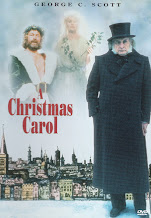
Within the films I have seen, however, I have found several scenes/characters that I believe are definitive. For instance, in the 1984 TV film starring George C. Scott there are two standout performances. The first is Roger Rees’s portrayal of Scrooge’s nephew. Nephew Fred is Scrooge’s only living relative, and Rees plays him beautifully, reminding the viewer that Fred cares for Scrooge, and, while he may not truly believe Scrooge might change one day, he still will keep the door open in the hope that one day his uncle will choose to step through it. There is a certain twinkle in Rees’s eyes, and a lovely joy to his laughter, that when George C. Scott does finally open his eyes and see not just Fred, but his sister’s son, you can’t help but feel like Fred has had a victory.
My other favorite from this film is Edward Woodward, whose Ghost of Christmas Present has completely spoiled me for any other actor. I have often thought that Dickens himself would approve of his scenes. His laughter, the mischievous look in his eyes, and eventually, his reproach of Scrooge for his attitude and his cruel words elevate the quality of the entire film and carry the underlying message of the story.
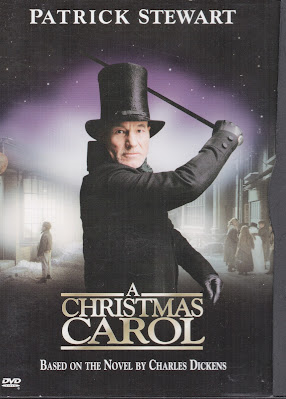
In the Patrick Stewart version, I believe Ian McNeice gives the hands down best performance as Mr. Fezziwig. The scenes at the Fezziwig Christmas party come to life with this man’s dancing and laughter. It’s a joy to watch. The Cratchit family in this version also bears a mention. Their Christmas celebration is marked by their easy familiarity and their boisterous exuberance. No other Cratchits I’ve seen come as close to what Dickens wrote.
I have to mention
A Muppet Christmas Carol. Having Rizzo the Rat and Gonzo narrate was a stroke of genius, and having Gonzo stand in for Charles Dickens himself was probably easier to accept than it should have been. This version means a lot to me for a lot of reasons, but let me mention a few of my favorite moments. Love the scene with Kermit as Bob Cratchit heading home with Tiny Tim (Robin the Frog) on his shoulders. The way they shoot that scene is almost mesmerizing. I'm also fond of the scene where Cratchit's twin daughters, Bettina and Belinda, welcome him home with a bone-crushing check into the front door. Michael Caine does a splendid job holding his own as he is forced to be mean to the Muppets. He could have gone over the top with it, but he delivers a solid performance.
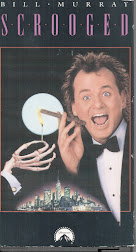
I’ve always thought that Bill Murray’s Scrooged should have been a bigger hit than it was. Bill Murray did an amazing job with his Scrooge-inspired Frank Cross, who moved through his life immersed in television to the extent that he sometimes confused television episodes with memories of his actual life. Murray managed to turn in a comedic performance without at all minimizing the point of the story.
Any successful book will spawn an industry around it, and there is no shortage of such things around A Christmas Carol. There are films, books, stage plays, decorations, and, in Philadelphia, even a Macy’s Dickens Christmas Village (having started out at the now defunct Strawbridge and Clothier in 1985.)
Authors through the years and around the world have written scholarly works, novels, graphic novels, film adaptations, television and radio adaptations, self-help books, self-help books (like Don’t Get Scrooged by Richard Carlson, Ph.D.) and yes, even A Christmas Carol Cookbook (yes, I own it!) taking inspiration from Charles Dickens’s original work.
My favorites of these are
The Annotated Christmas Carol by Michael Patrick Hearn and
The Man Who Invented Christmas: How Dickens’s A Christmas Carol Rescued His Career and Revived Our Holiday by Les Standiford. The first explains the intricacies of culture and language lost in the 172 years since the story was first published making sense of idioms and turns of phrase that have been lost in the mists of time. The second book explains how the idea for
A Christmas Carol seized hold of Charles Dickens and compelled him to write it. The book was something of a crusade for him, and he paid for its publication himself. The details of the genesis of the idea and the eventual completion of it as well as Dickens later embracing of it in an unprecedented tour reading the novel aloud is well worth a read.
Television, not to be outdone, jumped on the bandwagon as well. The primary plot of A Christmas Carol has been turned into many a Christmas-themed episode of some of the most popular television series as well as seasonal television movies. Among the TV shows who have found their annual Christmas special in the pages of Dickens’s classic story are WKRP in Cincinnati, Family Ties, Xena: Warrior Princess, The Six Million Dollar Man, Quantum Leap, Sanford and Son, The Jetsons, The Real Ghostbusters, and Doctor Who (with the Eleventh Doctor, though the Ninth Doctor did meet Dickens at Christmastime and there were ghosts—sort of!) I'm sure there must be more of these as well.
As for radio adaptations, there’s definitely no shortage. Lionel Barrymore played the role of Scrooge nearly every year between 1934 and 1953 on the CBS Radio Network. Alec Guinness (who also appeared in the 1970 film adaptation “Scrooge” as Marley’s Ghost) played Scrooge in a 1951 BBC radio performance that was also broadcast in the U.S.
Recordings are much the same with Ronald Colman, Tim Curry, Dan O’Herlihy, Ralph Richardson, Patrick Stewart, Tom Baker, Sylvester McCoy and even actor Gerald Dickens, the great-great-grandson of Charles Dickens, all recording dramatic readings of the story.
There are also parodies, operas, and graphic novels available as well as original novels (Timothy Cratchit’s Christmas Carol 1917 by Dale K. Powell, The Further Adventures of Ebenezer Scrooge by Charlie Lovett, Jacob Marley’s Christmas Carol by Tom Mula, The Humbug Murders: An Ebenezer Scrooge Mystery by L.J. Oliver, and A Midnight Carol by Patricia K. Davis).
Perhaps the oddest of the batch is A Klingon Christmas Carol. This is a play, the first to be entirely performed in Klingon. For Star Trek fans and Dickens fans may have opposing viewpoints on the existence of such a thing, but, as an ardent fan of both, I’m jubilant. Written as a fundraiser and performed frequently since 2007, the play concerns the SQuja, a Klingon moneylender, who exhibits a lack of courage and honor and the visitations of three ghosts, the Ghosts of Kahless Past, the Ghost of Kahless Present, and the Ghost of Kahless Yet-to-Come. (Yes, SQuja’s dead partner warns him about the visitations, there is an employee with a poor family—QachIt—with a crippled son and the Scrooge character does learn of his future and finally learns the error of his ways.) I haven’t seen more than a clip of it, but I can imagine the scope of writing and performing a play in Klingon.
The original story works so well that even such unique adaptations shouldn’t come as a complete surprise. It’s a universal theme that everyone can change for the better and A Christmas Carol tells the story so beautifully it’s inevitable that there will be imitators, devotees, and aficionados. For anything to have such an impact is in itself impressive, but to continue to have that sort of an impact for close to two centuries is extraordinary, and exceedingly Dickensian.
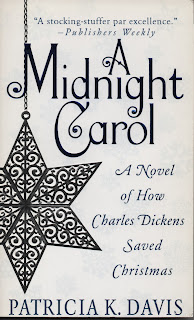
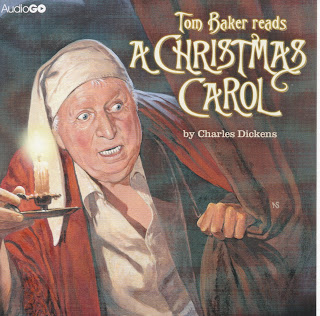



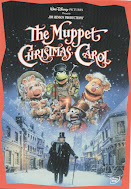


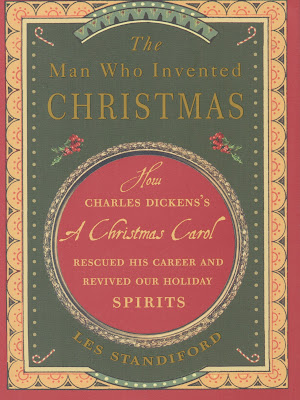
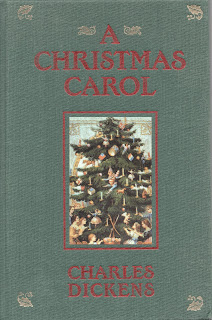
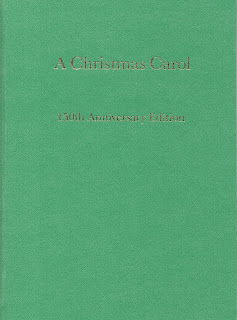
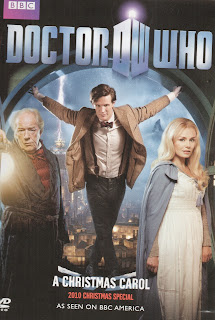
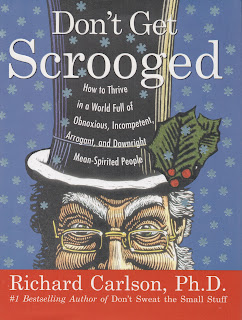
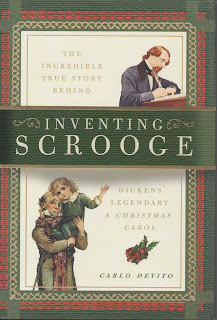
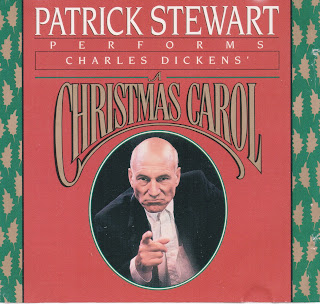






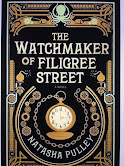

Comments
Post a Comment